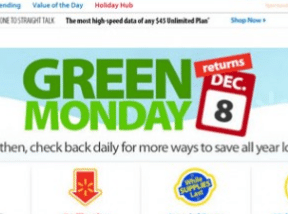It’s crunch time. If you procrastinated the proper planning for this now-current holiday shopping season, not all is lost. While there’s no time to completely revamp the online store itself, there are some quick-and-dirty ways to boost conversions, providing you have incoming traffic.
While some of these actions may be temporary, many can lay the foundation for a better shopping experience long term — something you can put more focus on next year.
Here are my 10 last-minute methods — plus one bonus method — to increase holiday conversions on your ecommerce site.
1. Simplify Navigation
Visitors need to clearly understand what you sell, how to locate products, and how to give you money. That’s it. Make it easy for them, and you’ll be ahead of the game.
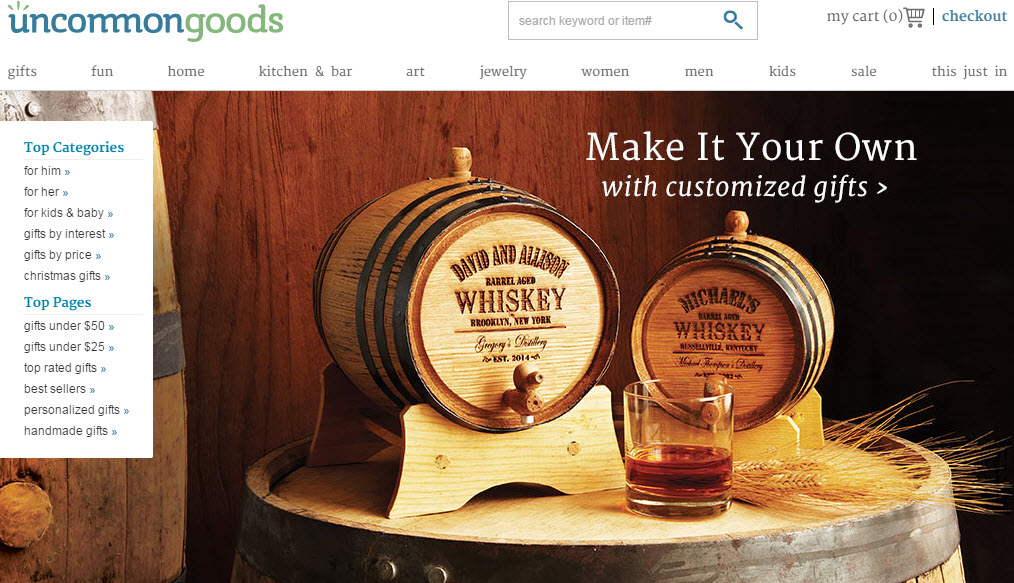
Providing a simple set of links to key gift-giving sections, including gifts grouped by price ranges, is a great guide for both existing and potential customers. Source: UncommonGoods.com.
2. Offer a Flexible Return Policy
A 30-day return policy in November doesn’t cut it. When buying gifts, the ability to return or exchange it in January plays an important role in the decision making process. So, even if an extended policy won’t work for your business model year-round, it is a requirement of many online shoppers during November and December.
3. Offer at Least One Shipping Method at Low or No Cost
Free is best, but if you must charge for shipping (even on large orders), a flat rate is makes it easier for shoppers to know what things are going to cost up front. It eliminates frustration from having to add an item to the cart to determine total costs.

Big stores like Target.com alter shipping policies during the holiday shopping season. Smaller businesses can benefit even if free shipping requires a minimum order subtotal.
4. Hype Key Selling Points in a Prominent Place
Display free shipping notices, extended return policies, and coupons in banners or blocks near the top of every shopping page.
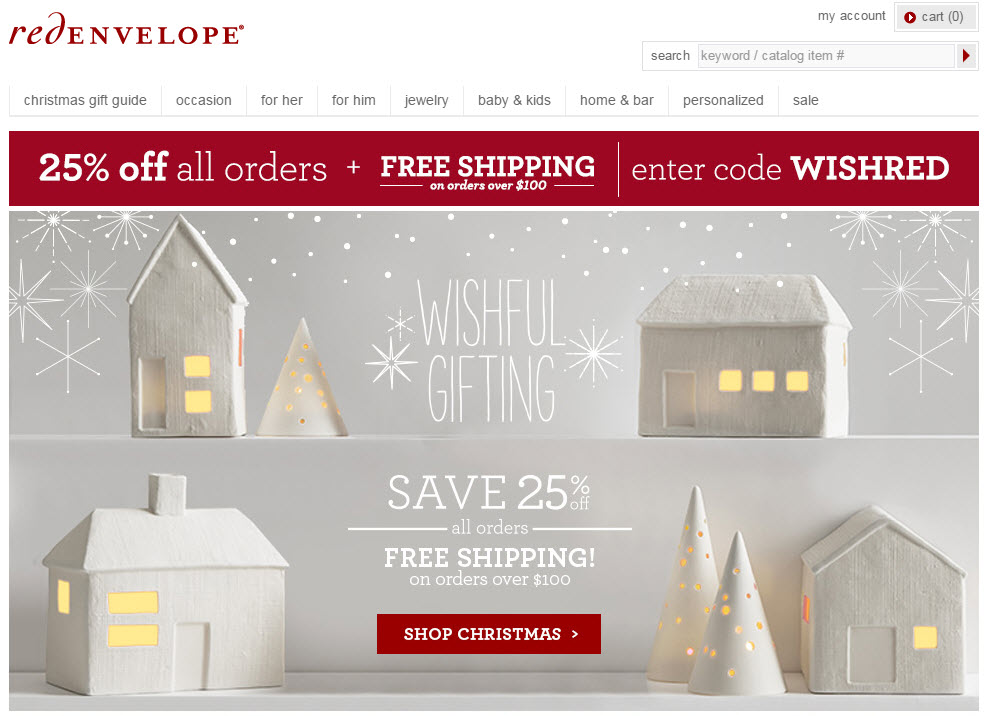
Top of page banners are perfect for conveying deals and money saving policies. Source: RedEnvelope.com.
5. Publish the Coupon Code
People love a deal, and they especially love coupons. Eliminate the practice of shoppers heading to Google to search for a discount code by publishing one right at the top of the page. Want to cut down on cart abandonments? Display the code right next to the coupon input field during checkout.
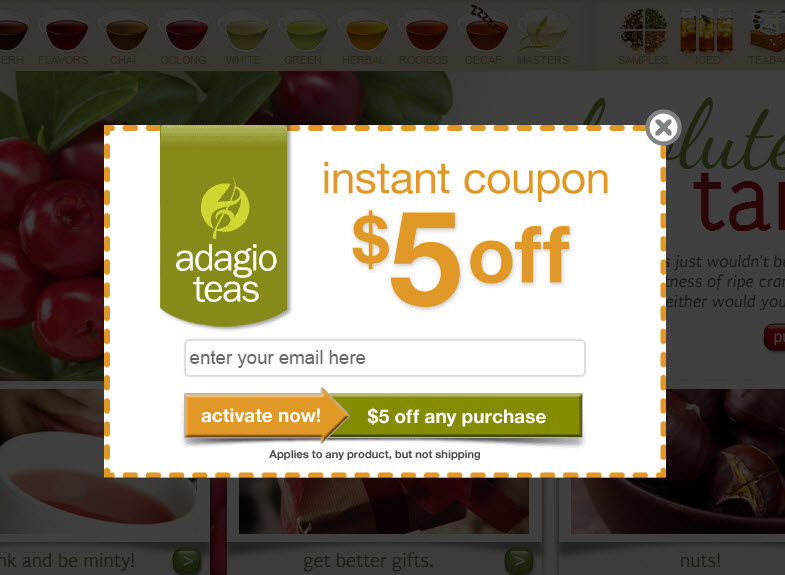
Consider offering up an instant coupon. Adagio.com, a retailer of teas, offers a generous $5 off in exchange for an email address.
6. Eliminate Confusing Requirements, Like Minimum Orders and Volume Purchases
Don’t frustrate gift buyers by requiring that they spend a certain amount or buy a certain number of items to complete the checkout process. Instead, consider adjusting shipping prices on smaller orders, and offer shipping discounts on larger ones.
7. Link to Popular Gifts, Even if Just a Few
Some people want you to tell them what to buy. A category of best-selling gifts in various price ranges makes it easy for them to click and check out. If your store features customer ratings and reviews, include items that rank high and include comments that help sell the product.
8. De-clutter Landing Pages
This includes the home page, categorical directories, and gateway pages. Less can be more when trying to direct shoppers to popular gift items, and unique or personalized products.
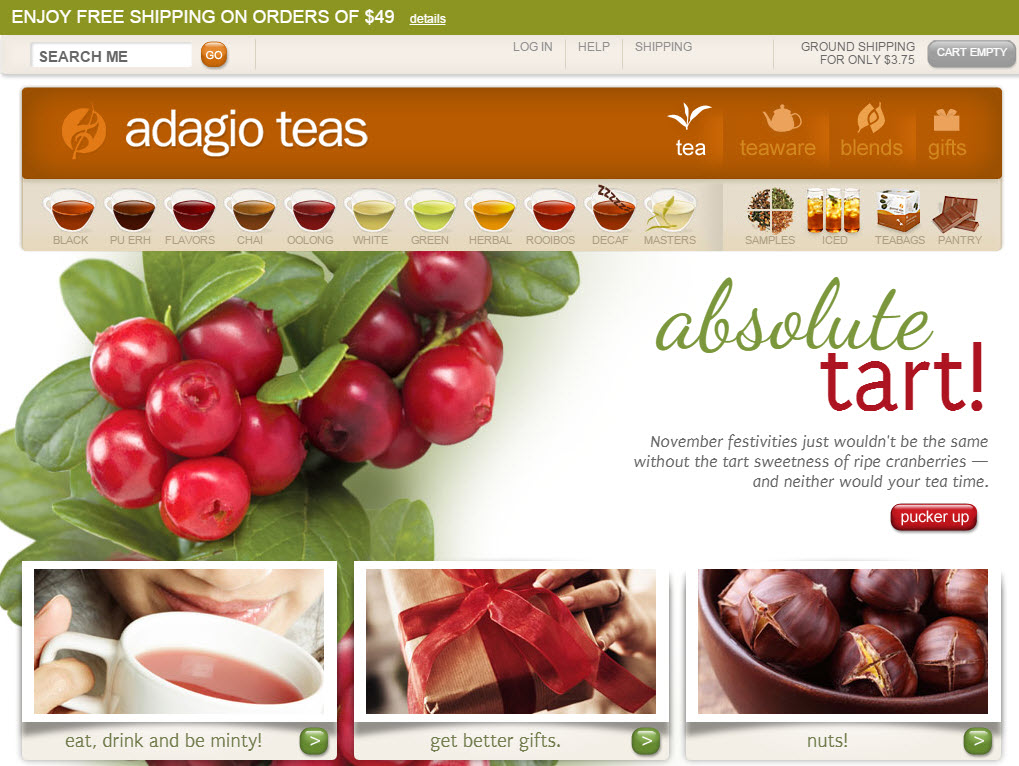
Adagio’s landing page targets both savvy tea drinkers and those looking for a gift for the tea lover. The “get better gifts” link goes to a simple selection of stocking stuffers and gift sets.
9. Display Payment Icons
Don’t leave shoppers wondering which payment methods you accept. Acceptance of Discover and American Express, as well as Amazon Payments and BillMeLater, can help close more sales.
Discover and AmEx cardholders often prefer only those methods online, while some prefer Amazon Payments and PayPal because they’re only providing their payment information to one company. Source: Fitzulas.com.
Don’t yet accept PayPal? Signing up is a quick process so there’s still time. Amazon Payments, though, can take longer.
10. Ditch Requirement for Customer Accounts
This can be a turn off for first-time (and one-time) buyers. So lend more weight to the actual information you need — not account logins and signups. While a customer account makes for quicker ordering in the future, it doesn’t streamline the checkout the first time around.
If your shopping cart supports PayPal’s Express Checkout, consider activating it now. This method grabs info (like the customer’s shipping information) from the PayPal user’s account. It’s much quicker to check out.
While this isn’t a top to bottom list, all the items listed above can be implemented relatively quickly, leaving you time to continue marketing and supporting your existing customers.
Speaking of marketing and conversions, here’s one last tip.
Implement Social Sharing
Even if you aren’t active on social media channels, people should still be able to share the products you sell. Sharing helps shoppers get feedback about products they are considering, and can also serve as reminders and wish-list entries on their own profiles. Top channels include Facebook, Pinterest, and Twitter. But there are many other channels that may apply, so consider an all-inclusive sharing tool as well.
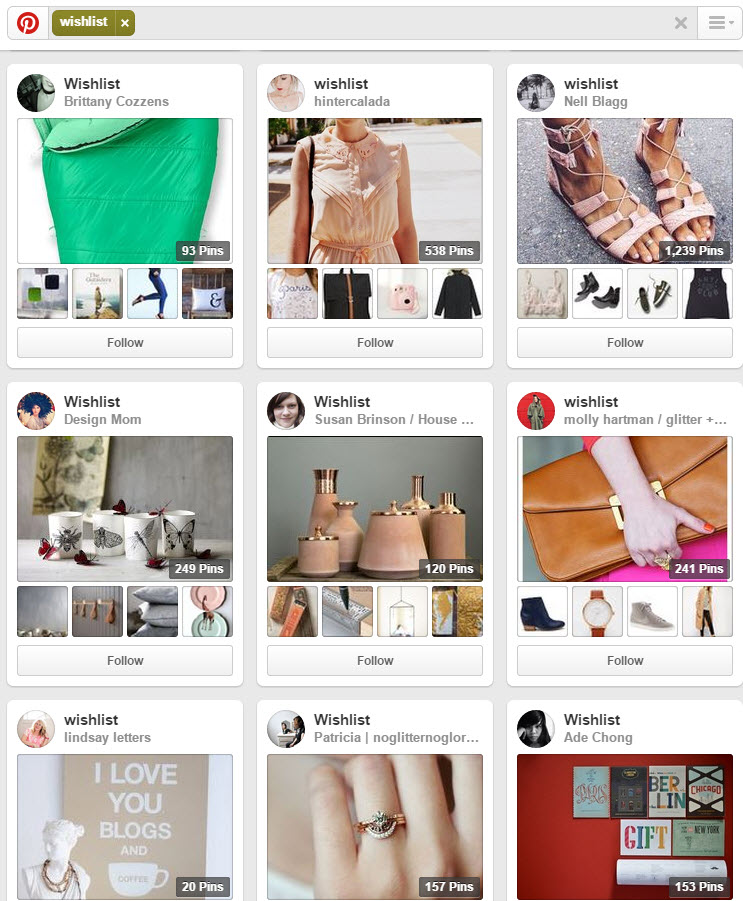
Thousands of Pinterest users now use the social network to maintain their wish lists.


